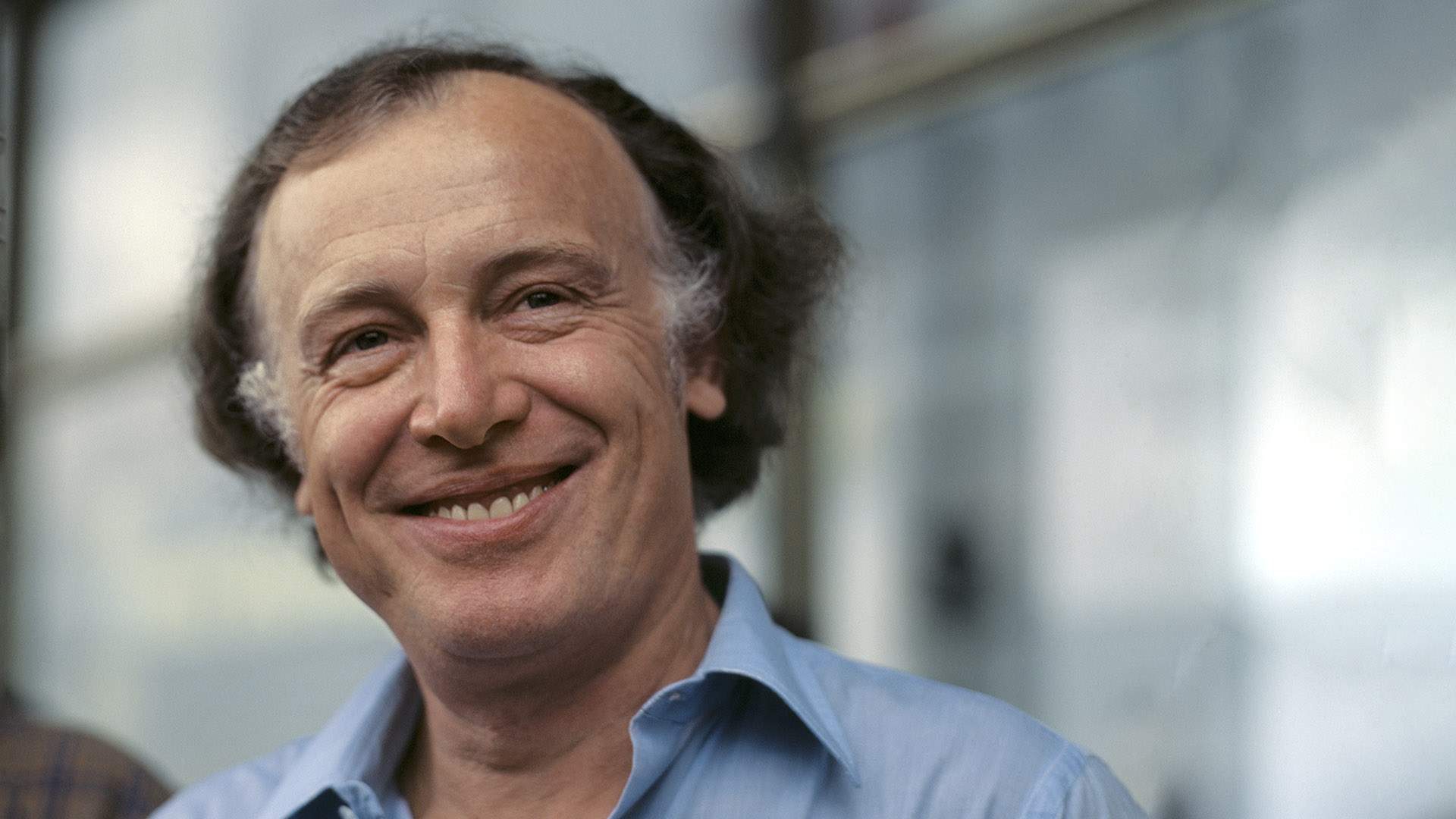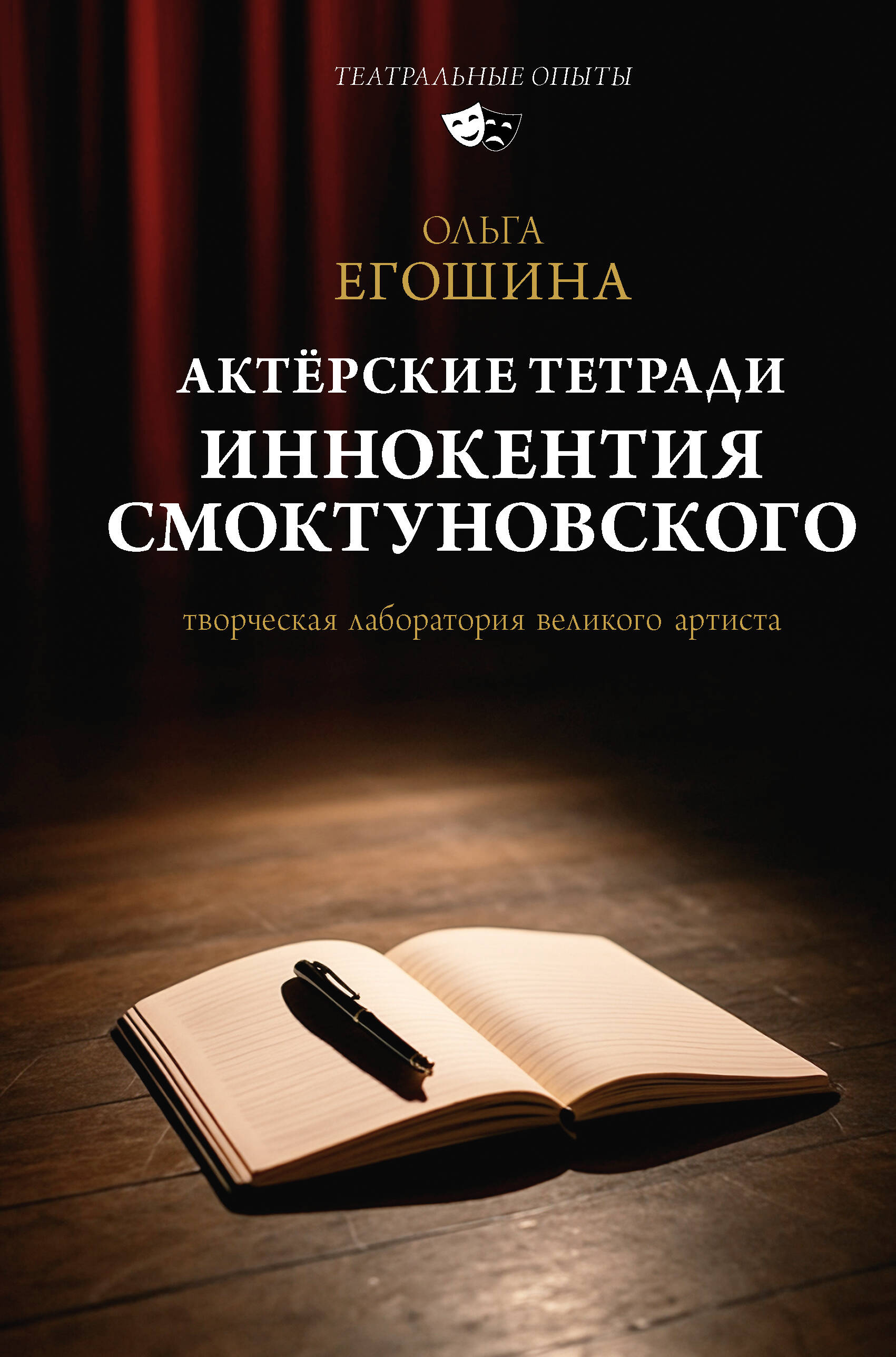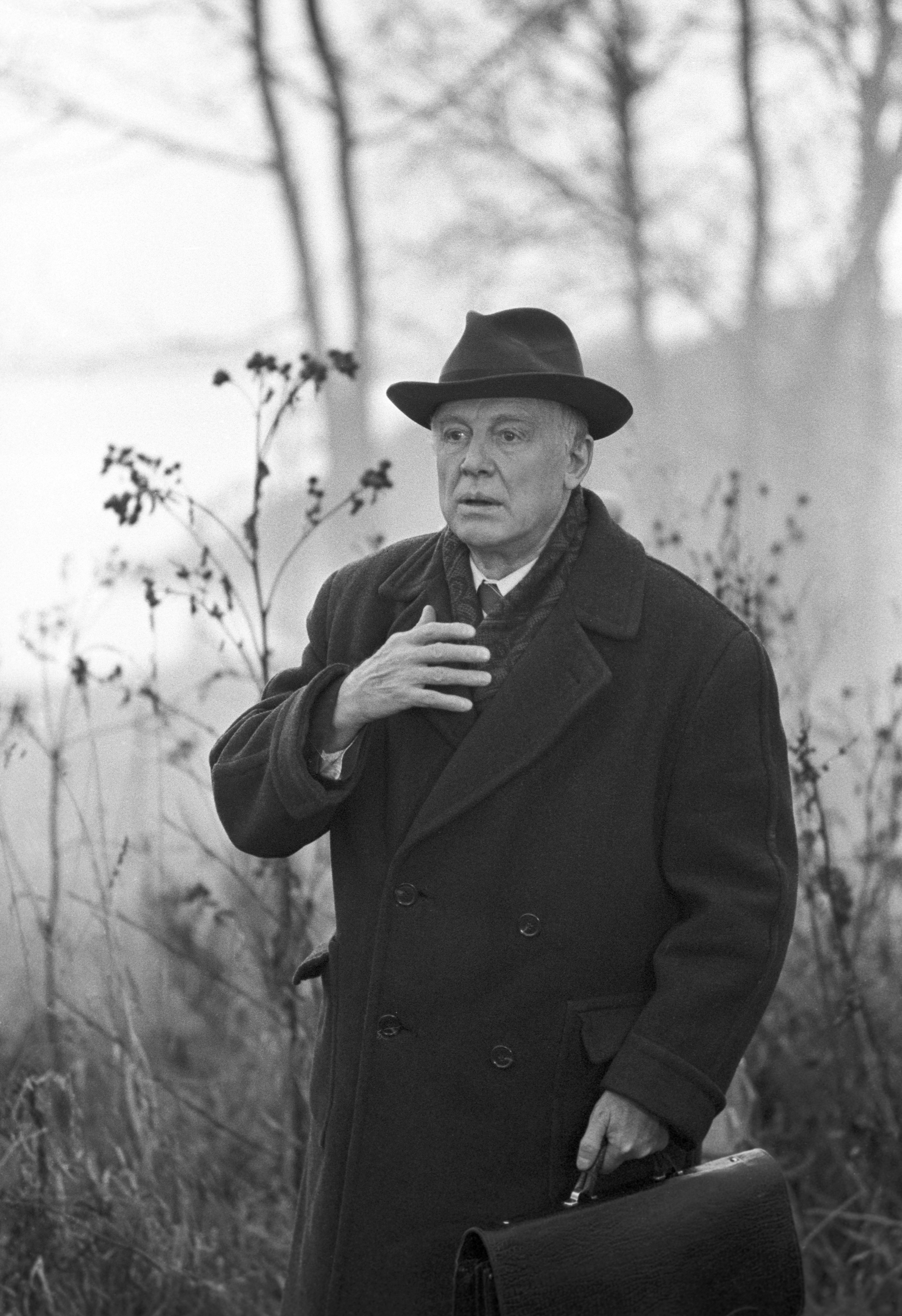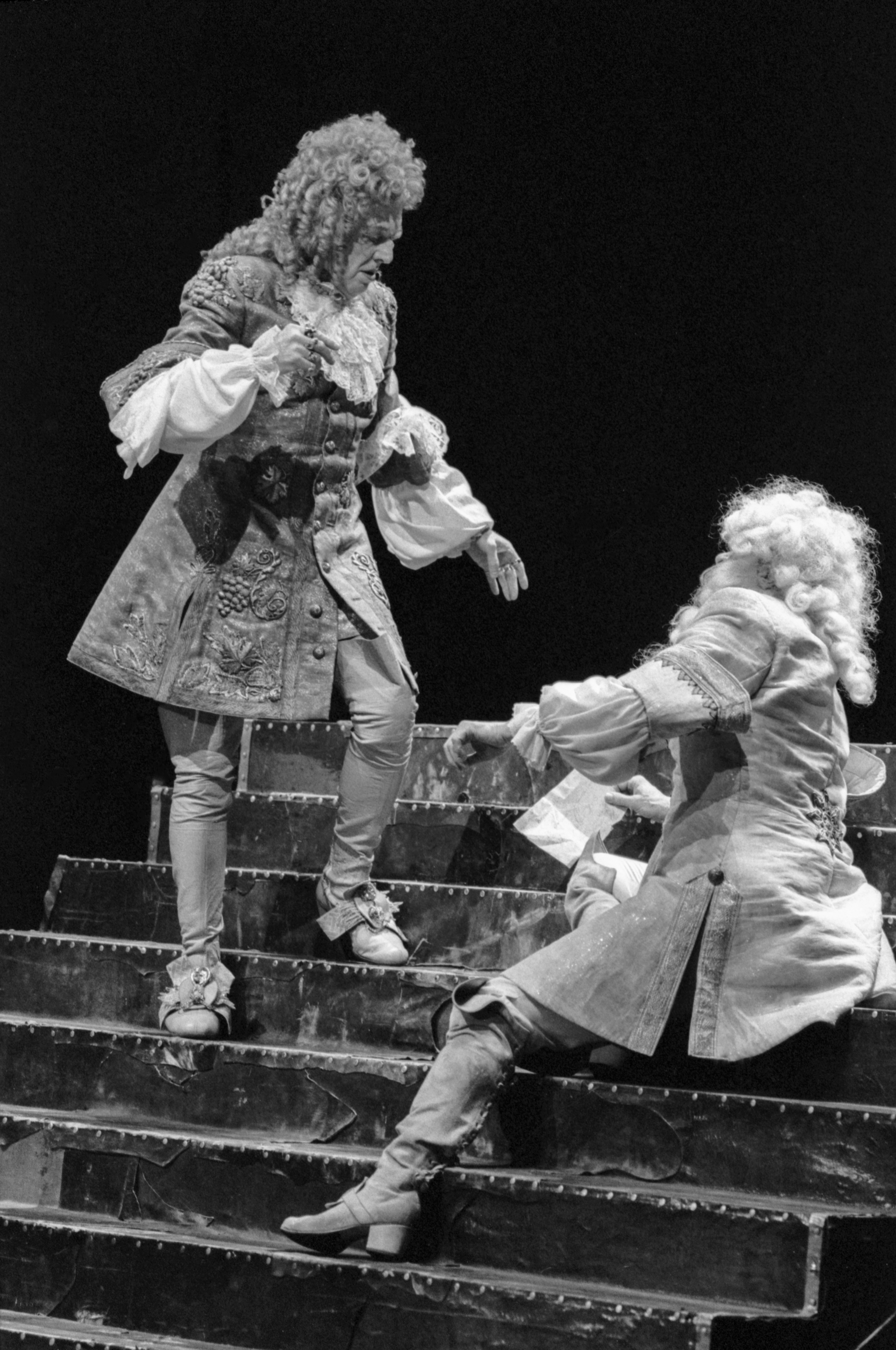Grief from idiocy: Izvestia publishes a fragment of a new book about Smoktunovsky

The fundamental work "Innokenty Smoktunovsky's Acting Notebooks" was performed by Olga Yegoshina, Doctor of Art History, professor at the Moscow Art Theater School. From fragmentary notes left by Smoktunovsky and miraculously preserved to this day, Yegoshina wove a detailed and accessible story to a wide audience about how the actor created his characters. The book will be released by the editors of OGIZ publishing house "AST" at the end of this month. But even now, Izvestia provides an opportunity to visit the actor's creative laboratory and not just see from the inside, but realize how Prince Myshkin was born for the Tovstonogov "Idiot" in the BDT. The text gives an amazing effect of presence and is similar to a dialogue and even in some ways an argument with Smoktunovsky, immersed in reflection and thinking aloud.
Olga Egoshina "Innokenty Smoktunovsky's acting notebooks" (fragment)

THE FIFTH PICTURE
Having written out the roles of "cherubic is not necessary" on the cover, Smoktunovsky emphasizes in his character the absence of childish naivety, impersonal kindness and goodness. So, in the scene at the Ivolgins' house, he marks:
"All the previous circumstances with Hania turned him against him. Something is already starting to annoy him. Even the air in this room is somehow special, unusual‑fetid, or something... got into a den."
This Myshkin instantly understood Ferdyshchenko and distanced himself from him: "He asks very strange questions, do not open up to him." Smoktunovsky gives a completely rational explanation for the "naivety" of Myshkin, who for a long time did not understand the "illness" of General Ivolgin: "He really wants to know about his father. The biggest interest."
His Myshkin was so engrossed in the subject of the conversation that he did not immediately pay attention to the interlocutor. And this inner detachment of his, his concentration not on the object, but on the subject of the conversation, was in contradiction with the task: "he is all about partners." Myshkin's communication was twofold: a telepathically sensitive interlocutor and a man detached from others, living his own difficult inner life. He opened his mouth to meet his interlocutor, then walked away from him into his inaccessible world. And this inner life was love for N.F.
For Smoktunovsky, it was important to constantly keep the "through line of the role" in a fractionated performance, scattered into paintings and episodes. Before the scene of the meeting with Nastasia Filippovna, Smoktunovsky writes out in the margins as if the stages of Myshkin's path to N.F.: "A conversation about N.F. Her portrait was kissed by the general. Her face." The appearance of N.F. in the hallway of the Ivolgins for this Myshkin:
"THE MEETING OF FATE (I.S. is highlighted here and further). I am amazed by the meeting. Stunned. He was stunned when he saw her. Tetanus."
Smoktunovsky describes the inner state of the hero here, but also the external action. The score of gestures and actions, sometimes with subtle psychological motivations, is described in great detail in this notebook. So, after Nastasia Filippovna's arrival: "He went out in silence so as not to talk to Gani's mother about N.F." Or, starting a conversation with N.F., he laughed, and then "the laughter abruptly passed."
For Myshkin, meeting N.F. is a kind of zenith point, a moment of supreme tension, but also of supreme clarity, when all the accumulated mental strength found a purpose, the moment of becoming a person: "Clarity — complete calmness — I was not deceived. Acquaintance — the world around is gone. It's a bit of a phantasmagoria. You can't even imagine!"
Then, many years later, at a meeting with the audience, Smoktunovsky commented on his work on Myshkin: "I realized what I was missing; I was missing complete, absolute, divine peace. And on the basis of this peace, huge perimeters of emotional seizures could be born..."
And the moment of meeting Nastasya Filippovna was for his Prince Myshkin just that point of clarity and divine calm. Myshkin was meeting his fate, and this meeting set him free. This Myshkin looked at the passions boiling around him from the side, like a man who had entered a charmed circle and was therefore isolated from what was happening by immersing himself in his own world: "What are you doing here, gentlemen???"
He held Gani's hand as he swung at his sister, and after receiving a slap from him, "he did not recoil back, but gathered himself like a taut spring, as if he were preparing for a response."
PICTURE SIX
Myshkin appeared at Nastasia Filippovna's door, burning with anxiety: "Will they let you in or won't they let you in??? A searching, intense eye. "Just her, warn her." When he saw Nastasia Filippovna, this Myshkin instantly forgot everything, looked at her: "As if at a portrait, contemplating her. And here I stand before you."
In the future, Smoktunovsky will often use the "stream of thoughts" technique in his role notebooks. At the moments when the hero is silently present on the stage, the artist will describe in detail his inner state, thoughts, emotions, thereby creating a line of internal action. In Myshkin, the artist is just beginning to master this technique: "A scene of embarrassment and inconvenience. Or maybe you have someone else?" and then in the scene of Nastasia Filippovna's confession: "Calm her down. Snatch it away. Why are you talking about yourself? Remove the "thing" theme. Shake her up. Come to your senses. My God, what a man they've brought him to!"
Smoktunovsky lived in this scene with anxiety and pain for a beautiful and unhappy woman, absolutely not thinking about himself, about his love, about his hopes. In the margins of the scene where Myshkin shows a letter about the colossal inheritance awaiting him, Smoktunovsky noted to himself: "No value to the letter." Just as he wrote out the subtext of Myshkin's phrases about Rogozhin ("He's drunk. He loves you very much."): "He's a good guy. He's not like that."
And a very unexpected inner message, with which Myshkin makes Nastasia Filippovna an offer.: "I will respect you all my life, Nastasia Filippovna." "I know how you can be cured. Now kick everyone out."
During the rehearsals, he submitted his resignation twice, he was sure that he was failing the role. Smoktunovsky's account is repeatedly quoted as saying that he received the necessary inner boost by looking at a man in a crowd who was calmly reading a book. The crowd was bustling around, but he didn't notice anything, immersed in his book and his thoughts. The continuation of a significant meeting is rarely told. Smoktunovsky approached and met a man of standing, philologist Sergei Zakheim, who had recently returned from the camps where he had stayed for 17 years. Later he often dined at the Smoktunovskys' and talked about Dostoevsky.
As Sulamith Mikhailovna Smoktunovskaya recalls, "Innokenty Mikhailovich looked at him closely. And then he said, "I think I've found Myshkin." Some gestures, the manner of gesturing suggested something." And in the classic novel Myshkin, they suddenly guessed the "prison" plasticity, which gave a special highlight to the freest hero of our scene. One way or another, but in December 1957, the artist gained confidence in his vision of the image. Smoktunovsky's wife, having received the good news, responds in a reply letter: "The main thing is that now you are convinced of your vision, and therefore you have convinced others of it. Thank you so much for sharing this joy with me."
PICTURE SEVEN
"In Rogozhin's house." In this scene, the pulse of Smoktunovsky's recordings changes. The rare dotted markings are replaced by a fever stream. And the very rhythm of the alternating phrases conveys the torn state, the feverish work of his brain, the tension with which he tries not to give vent to his premonitions, the firm secret knowledge about Rogozhin's murderous plan: "He knows that he wants to kill him. Should I go to him or not? To go is to understand." The tone of Myshkin's arrival: "I came to the opponent." And the most painful duty is to pretend: "He sees and understands everything, but hides it. It's okay not to betray your suspicion in any way. "Even a hair casts a shadow." Goethe."
Myshkin, according to the artist, did not suspect Rogozhin — he knew what was happening to him. His heightened sensitivity allowed him to pick up any hair in someone else's soul. But this telepathic ability to read other people did not bring joy. This Myshkin was tormented by his own knowledge and tried to shield himself from the terrible truth: "I don't want to believe that a murder is being prepared. People are better than I think they are." In parallel with his dialogue with Rogozhin, Smoktunovsky writes out Myshkin's inner monologue.:
"She ran away from him to me, almost enemies. Let's figure things out.: You know that.
"I'll get out of your way."
"I won't bother you anymore.
— I see how you suffer.
—Honey, you hate me now. You don't believe it."
And then the most important definition of Myshkin's way of contacting people around him: "The answer is not to a phrase, but to an internal monologue." His Myshkin reacted not to what was said out loud, but to thoughts "about himself", understood and felt the interlocutor in his innermost spiritual movements. And this created a strange duality of his contact with people: constantly immersed in himself, listening to some inner voice, Myshkin "heard" and perceived the whole interlocutor with absolute completeness.

Another fundamental feature of Smoktunovsky's acting notebooks is related to this: he not only comments on his character's lines, he writes out his inner reaction to the words of the interlocutor, thereby creating continuity of mental life and that contact with a partner when you respond not to the words, but to what is behind them. His Myshkin was internally experiencing Rogozhin's feverish story, and Smoktunovsky writes out the amplitude of contradictory mental movements.:
"Oh, how she made him angry!
"He's going to stab her."
— I beat you black and blue, I don't believe it.
— What do you think of her sick, crazy, unhappy…
— She needs to be saved.
"She needs to be taken away."
And here Smoktunovsky writes out the general core of the role: "Put the whole role on a terrible love for N.F.". The epithet "terrible" conveys both the enormity of the feeling and its painful, painful nature. As well as the common actor's phrase "to plant a role" next to "terrible" will suddenly return the feeling of tension of a violent act ("to put on a needle", "to impale"). Like a butterfly impaled on a needle, his Myshkin lived, pierced by his feeling, not having the strength to forget for a second. He clung to every possibility of some kind of resolution to an unthinkable situation. His phrase: "Who knows, maybe God will arrange you together," the artist provided several notes: "Did everything work out for you? My God, that's a good ending."
And a moment later, the swing is down. To Rogozhin's words about Nastasia Filippovna's love for the PRINCE:
"Yes, yes, she loves me."
Yes, it is.
The actor framed these words as the final result of the hero's thoughts: he understood, hesitated, and was convinced of their truth. And he immediately realized how this knowledge changed and complicated his communication with Rogozhin: "God, how much I have here. I'm a fool! He's annoyed with himself." The scene with Rogozhin is painted by Smoktunovsky with more detail and freedom than the previous scenes. She no longer sees the situation from the outside, but from the inside. The actor clearly "felt" Myshkin and is already free to describe mood swings, overlapping conflicting desires and insights, flashes of visionary sensitivity and weakness.
Smoktunovsky then captures another component of Myshkin's well-being: he is drawn away from here and at the same time his turmoil, his love, and his anxiety keep him here. To the words "I didn't want to come here! I wanted to forget all this stuff here, to tear it out of my heart. Well, goodbye" comment: "He can't leave." He talks about the cross he bought from a soldier, as if in passing, just not to be silent. And Rogozhin's suggestion to swap crosses takes you by surprise.

In the margins: "Slow to understand." And when Rogozhin puts the dots on the I: "So as not to kill you," the internal double reaction: "He has known for a long time. What are you talking about?!" The artist sees the situation from several points of view.: from the outside, when he notices that Myshkin "knows" him. And from the inside, when Myshkin's reaction is direct: "What are you?!" The difference in assessment points gives the necessary amount of perception of the situation, the multidimensional density of existence in the image.
Переведено сервисом «Яндекс Переводчик»








